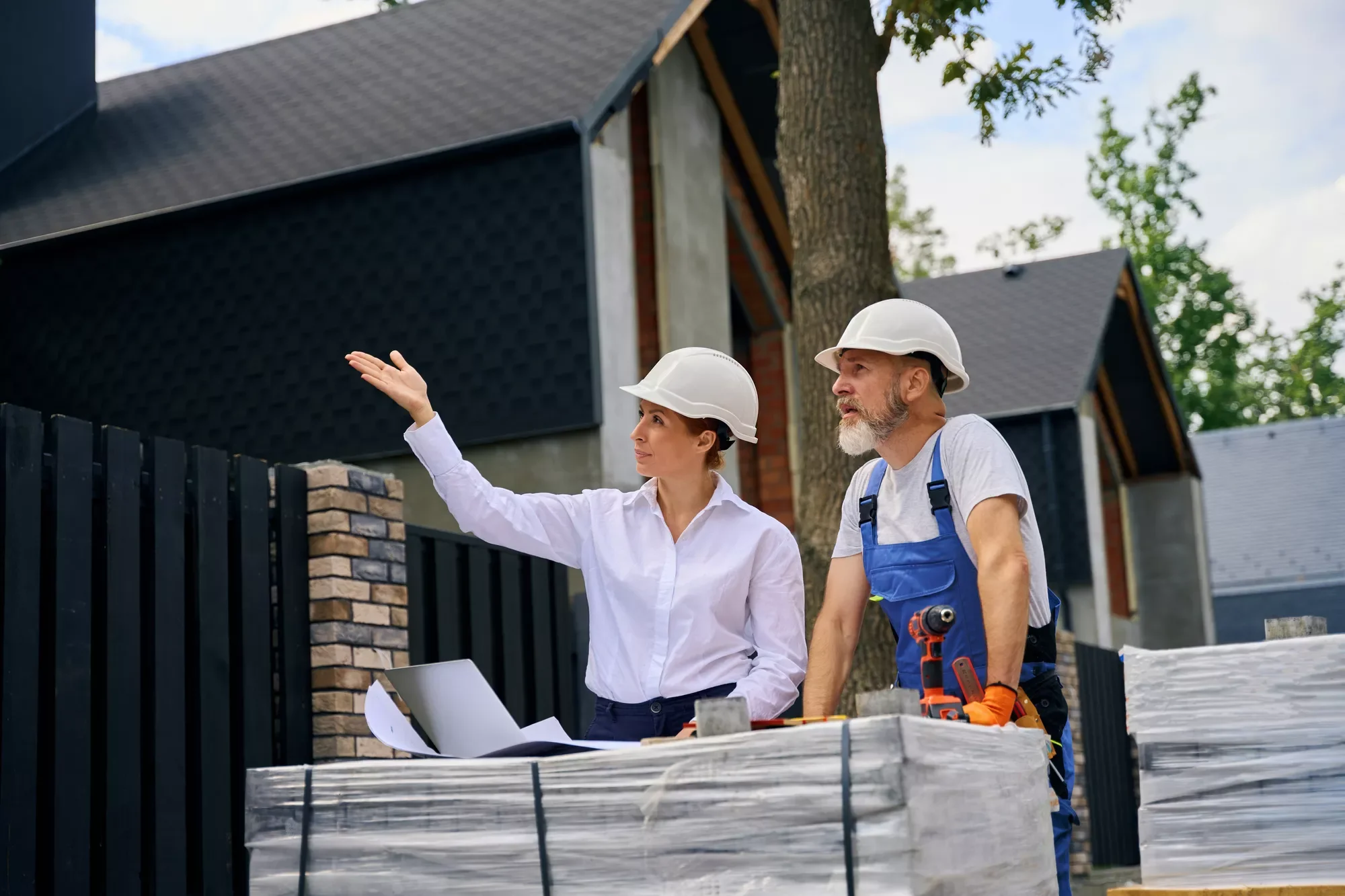
Residential Deck Inspection in California
A residential deck inspection is essential for keeping your deck safe, structurally reliable, and compliant with the building code for residential decks. Because decks endure constant exposure—sun, moisture, temperature changes, and foot traffic—issues can develop quietly long before they become visible. Ignoring these early signs can lead to safety hazards, costly repairs, or failed code checks during home sales or renovations.
At The Sterling Watson Collective, we provide engineering-focused deck inspections to identify problems early, confirm code compliance, and provide homeowners with clear, actionable recommendations. Our approach prioritizes accuracy, long-term safety, and complete alignment with California’s building standards.
The building code for residential decks outlines the minimum safety requirements for construction and ongoing performance. These standards cover structural sizing, railing heights, hardware specifications, waterproofing details, and load-bearing expectations.
Structural Requirements: We verify whether your deck meets the required standards for joist spacing, beam sizing, post height, and allowable spans. These factors determine how well your deck can support people, furniture, and environmental forces.
Safety Standards: Guardrails, handrails, and stairways must follow precise guidelines for height, spacing, and strength. Older decks often fall short of today’s standards, making this evaluation particularly important.
Attachment & Waterproofing Rules: Codes specify approved hardware types, bolt patterns, and flashing installation to prevent moisture infiltration and maintain structural integrity. Improper flashing is one of the most common reasons decks fail inspection.
Local Code Variations: California cities and counties often modify or expand state requirements. Our team maintains familiarity with local code adjustments, permitting guidelines, and compliance expectations across multiple jurisdictions.
How The Sterling Watson Collective Ensures Code Compliance
When you schedule a residential deck inspection with us, you’re getting a structured, engineering-driven process that prioritizes compliance and clarity.
-
Our inspections include measurements, photos, condition notes, and code-aligned recommendations. You receive a professional report outlining every concern and corrective option.
-
If your deck requires a permit, safety correction, or structural upgrade, we coordinate with local building authorities to ensure everything aligns with jurisdictional expectations.
-
We use moisture meters, measurement devices, and structural analysis tools to detect problems early—issues often overlooked in basic contractor-level inspections.
-
If improvements are needed, we provide guidance that aligns with safety codes and long-term durability. Whether you need reinforcement, new hardware, or structural modifications, we help you make informed decisions rooted in engineering best practices.
Common Deck Issues Found During Inspections
Many inspection findings relate directly to safety concerns or building code violations. Some of the most common issues include:
• Water damage from missing or improper flashing
• Loose or unstable railings
• Undersized beams or over-spanned joists
• Corroded hardware or incompatible metals
• Shifting or sinking footings
• Unsafe ledger attachments
Each of these issues, if left unresolved, can compromise the entire structure. Identifying them early prevents major repairs and ensures your deck remains safe for everyday use.
When to Schedule a Deck Inspection
Homeowners should schedule an inspection if:
• The deck is over 10 years old
• Visible gaps, movement, or rust appear
• You live near the coast, in high-moisture areas, or on a hillside
• You plan to remodel or sell your home
• Railings feel loose or boards shift under weight
A proactive inspection is far more cost-effective than emergency repairs or extensive structural replacements.
Schedule a Professional Deck Inspection
A safe, durable deck begins with a professional evaluation. Whether you’re maintaining an older structure, preparing for a renovation, or ensuring compliance, a thorough inspection protects your home and everyone who uses your outdoor space.
Contact The Sterling Watson Collective today to schedule your residential deck inspection. Our team will assess your deck with precision, provide clear recommendations, and help ensure your structure meets California’s safety and building code standards.
Frequently Asked Questions
-
Older decks often fall short of today’s standards, especially if they were built before current regulations. We compare your deck against today’s requirements and outline the updates needed for full compliance.
-
In many cases, yes. We determine which components can be reinforced or replaced and provide a clear plan to restore structural stability.
-
Some issues—such as loose railings or compromised ledger boards—should be addressed immediately due to safety risks. We prioritize each concern so you know what requires urgent action.
-
Even a compliant deck may not be designed for added loads or new features. We assess whether upgrades are feasible and recommend reinforcements if they’re needed.
-
Yes. A documented inspection from The Sterling Watson Collective gives buyers confidence, reduces surprises during negotiations, and supports smoother closing timelines.
What’s Included in a Residential Deck Inspection
A deck inspection must go beyond a surface look. Our evaluations follow a structured, engineering-driven process that covers all major elements of the deck’s design, construction, and long-term performance.
Structural Components
We assess the primary load-bearing elements: joists, beams, posts, and ledger boards. Our team checks for proper sizing, alignment, secure attachments, and signs of warping or sagging.
These elements form the foundation of your deck’s strength; even small failures here can compromise the entire structure.
Hardware, Fasteners & Connectors
Corroded or inadequate hardware is a common issue, especially in coastal or high-moisture environments.
We inspect the condition of nails, screws, bolts, brackets, and metal connectors to verify they remain strong enough to support load transfer across the structure.
Ledger Board & Waterproofing
The ledger connection is one of the most critical points in deck construction. Improper flashing or fastening can allow water to penetrate the home’s framing.
We examine flashing materials, bolt spacing, corrosion, and attachment methods to ensure the deck remains securely and safely connected to your house.
Footings & Foundations
Deck stability depends heavily on proper footings. We check depth, concrete condition, post anchoring, and soil movement around the home, particularly important for hillside homes and areas with expansive soil.
Railings and Stairs
Railings must meet precise height and load-resistance requirements to prevent fall hazards.
We check railing stability, attachment points, baluster spacing, and stair construction to confirm that everything aligns with safety codes.
Hidden Moisture & Rot Detection
Decay often begins beneath boards or inside structural components. Using tools designed for moisture detection, we identify rot, fungal growth, or early-stage deterioration that may not be visible from the surface.
By completing this full review, we provide you with a clear understanding of your deck’s structural health and the steps needed to maintain long-term safety.
Understanding the Building Code for Residential Decks
Our friendly and professional team is ready to help you book your professional deck inspection today.


